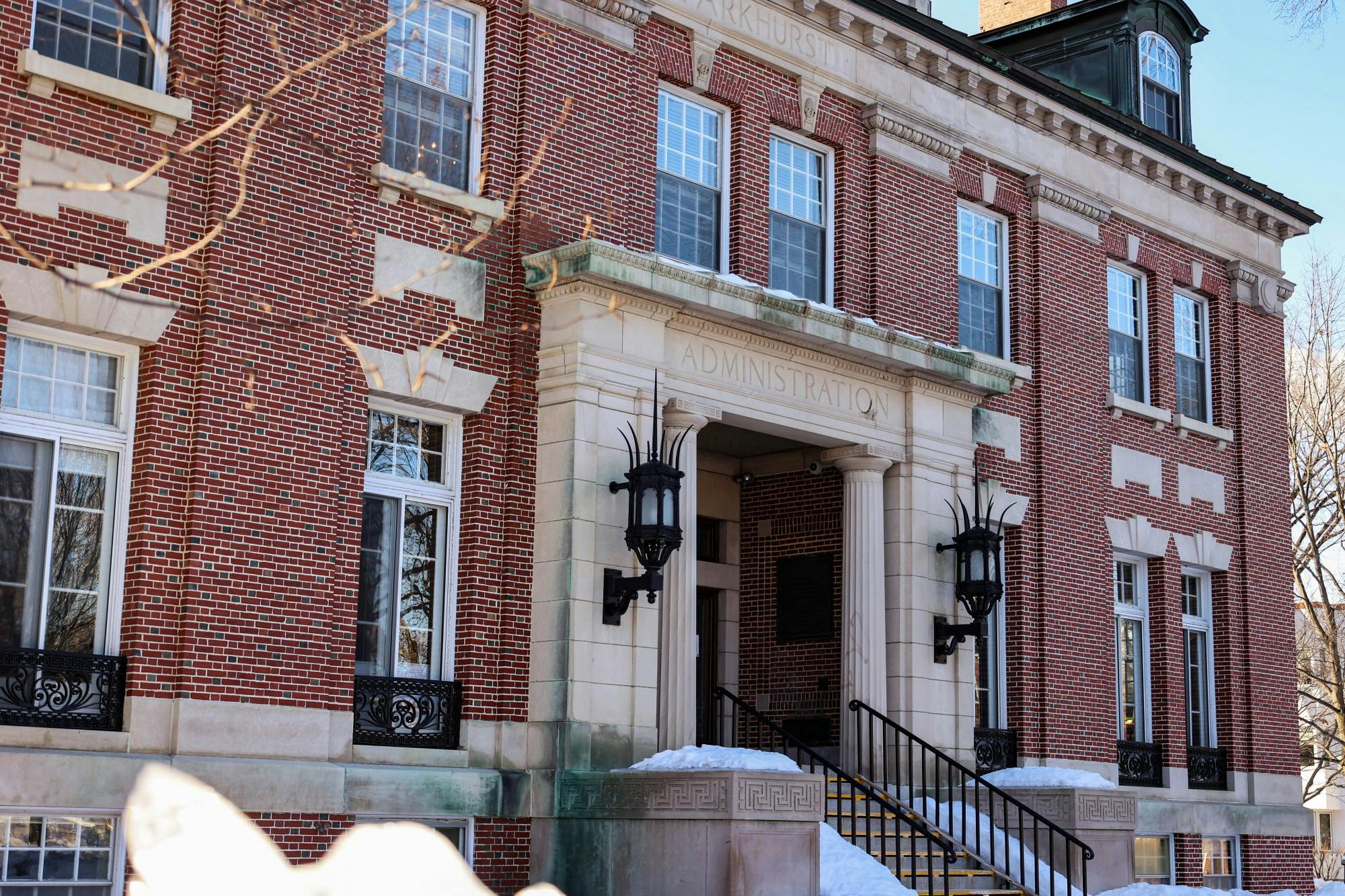Some students and staff have expressed support for the lifting of certain longstanding campus COVID-19 restrictions, applauding the flexibility that the new policies give community members.
Masks are no longer required in indoor spaces as of March 16, and after April 10 asymptomatic surveillance testing will become optional. In addition, the College will no longer require visitors to provide proof of vaccination or negative COVID-19 test results. Spaces that were previously closed during the winter term, such as first floor Berry, also reopened for the spring term.
In an interview with The Dartmouth, provost David Kotz explained that changing Centers for Disease Control and Prevention guidance, high booster shot compliance within the Dartmouth community and the declining caseload at the end of winter term all contributed to the decision to loosen COVID-19 restrictions.
“All of these things together made us think that it was likely we would want to, as we had a couple times during the winter, relax further as we got into spring,” Kotz said. “It was really a question of what exactly we would change and when.”
Kotz said that Dartmouth’s high vaccination and booster rates “gave us a lot of comfort.” According to Dartmouth’s COVID-19 Dashboard, 93.8% of the campus community is up to date on vaccinations — meaning that they have received a booster shot — and 97.9% are fully vaccinated. In the state of New Hampshire, 68.2% of the population is fully vaccinated.
“That makes us a little different than the general New Hampshire population or the general national population,” Kotz said.
In deciding when to implement these changes, Kotz explained that the College attempted to align its policies with other local organizations’ regulations.
“We were very interested in cooperating with the town of Hanover and the Dresden School District because of course we all live together, right? It’s one community, and also a lot of Dartmouth employees and some students have children in the local schools, so we wanted to coordinate the timing of our change,” Kotz said.
The College also communicated with Dartmouth-Hitchcock Medical Center and peer universities to formulate the specifics of the new regulations, according to Kotz.
Tanner Jones ’22 described himself as “the first person to criticize what [the College is] doing,” but said that he is in support of their new policies.
Jones said that the new policies seem “super reasonable,” balancing the health risks of the virus to a small group in the Dartmouth community and the need for a “real” higher education experience.
Jones added that, in the past, the College’s COVID-19 policies did not seem like they were “driven by health and science information,” and he appreciates that the new policies are “basically in line with what the CDC says.”
Associate librarian for research and learning Jennifer Taxman said that she is “happy” that everybody has the option to mask or not, depending on their level of comfort. At the end of fall term, first floor Berry Library closed due to low mask compliance in the library.
“I’m glad that individuals have the choice whether or not they wear a mask,” Taxman said. “I’ve seen students, staff, faculty both wearing masks and not in these spaces.”
Kotz said that he has heard student and faculty concerns on behalf of those who are immunocompromised, have family members who are immunocompromised or are otherwise at a heightened risk for COVID-19. Due to this, Kotz emphasized that it is important for everyone in the community to respect those who may act with more caution than the guidelines mandate.
“I really want people to be respectful of people who choose to wear [a mask] or choose not to wear masks,” Kotz said. “Everybody’s kind of in a different place.”
While Kotz emphasized that the pandemic has been “very hard to predict” and that adjustments to the COVID-19 guidelines are always a possibility, he does not predict there will be any immediate changes.
“It’s possible that we will need to reinstate some constraints,” he said. “I don’t see that happening soon, but we’ll be watching very closely these first two weeks of the term as everybody is back and getting their first test this week, second test next week, to see what is actually happening here on campus.”
Tanner Jones is a member of The Dartmouth opinion staff.
Correction appended (1:21 p.m. March 29, 2022): This article has been updated to disclose that Jones is a member of The Dartmouth staff.
Arielle Feuerstein ’24 is an English major from Bethesda, Maryland. She currently serves as the production executive editor, and in the past, she wrote and edited for Mirror. In addition to writing, Arielle enjoys crocheting, board games and walks around Occom Pond.




